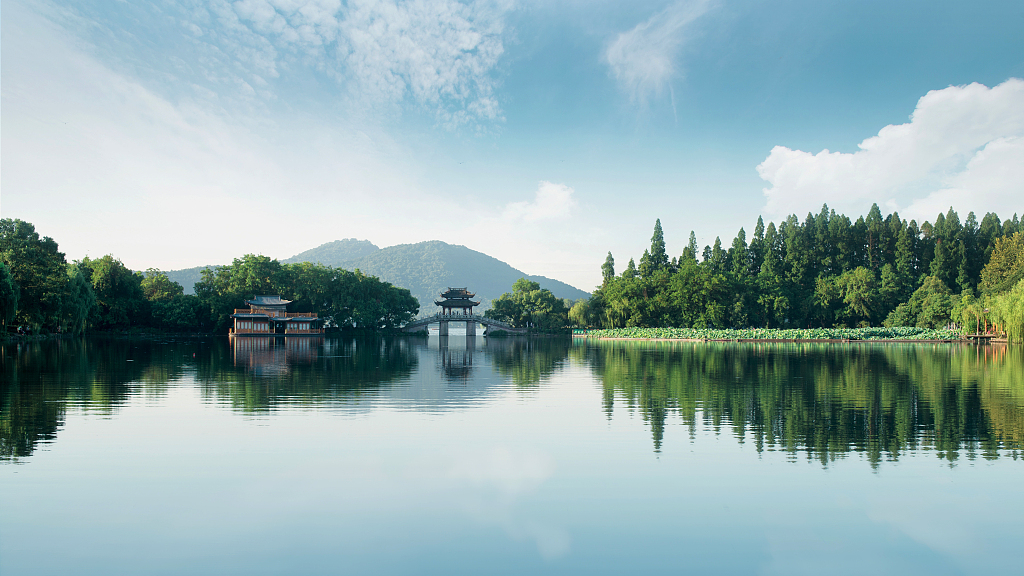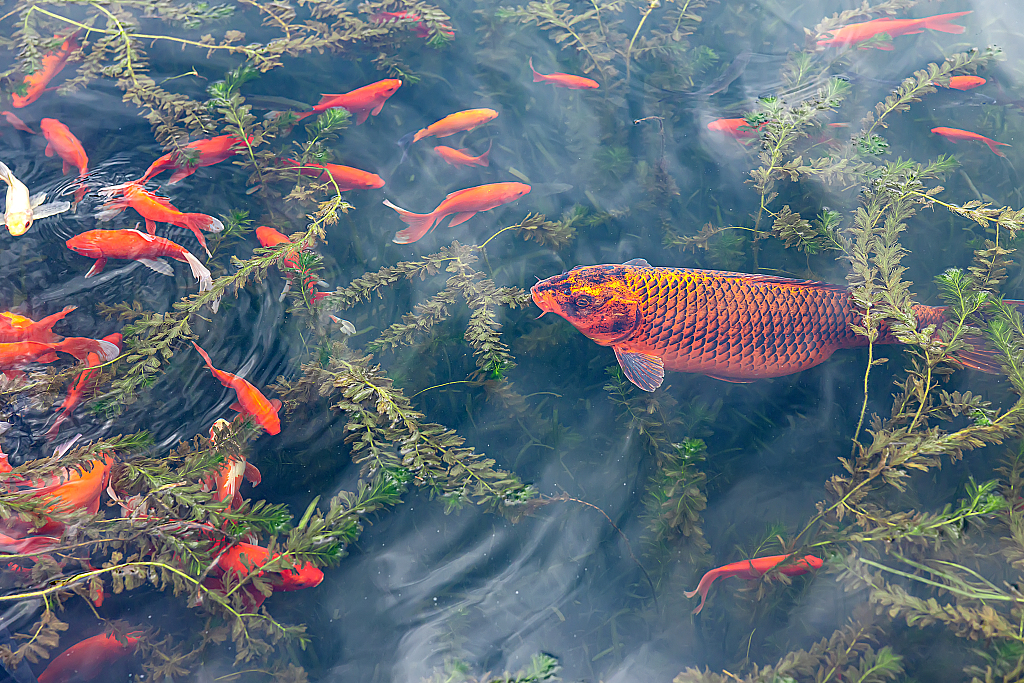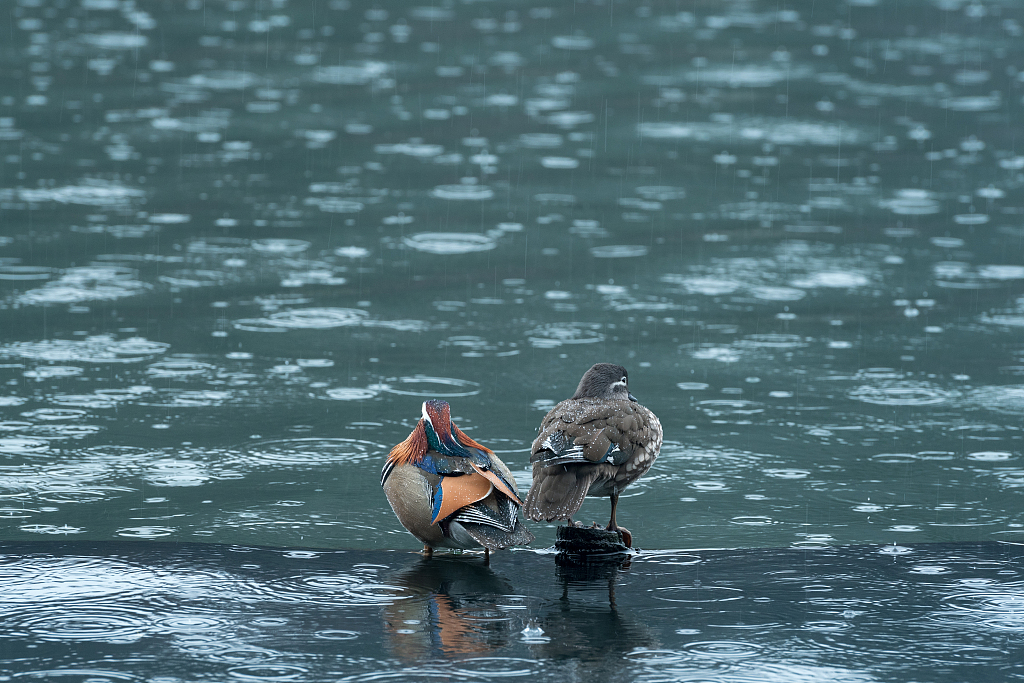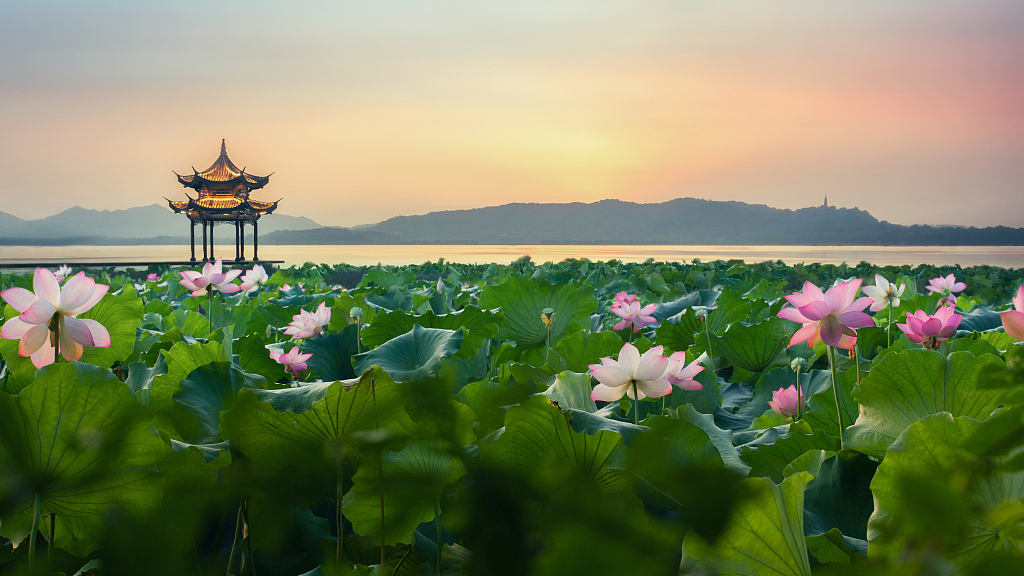Researchers have completed the first background survey of fish diversity in the West Lake in the eastern Chinese city of Hangzhou, paving the way for the scientific improvement of the ecological environment of the UNESCO World Heritage site.

Scenery of the West Lake. /VCG
Scenery of the West Lake. /VCG
During the survey, researchers identified 36 fish species in the inland lake -- including the crucian carp -- belonging to nine families and 28 genera, with the carp family dominating, statistics show.
The survey was conducted between 2021 and 2022, and it shed light on the composition of fish species as well as the quantities and weight proportions of different types of fish.
Ding Gaofeng, director of the lake's water body management office, said that the survey aims to improve the protection of the lake's ecology and achieve harmony between humanity and nature.
"Fish are an important component of lake ecosystems. Clarifying fish community structures and the status of resources is a necessary step in investigating the lake's biodiversity, and also a prerequisite for the scientific improvement of the lake's ecology through fish community management," said Rao Lihua, deputy director of the office that led the survey.

Fish in the West Lake. /VCG
Fish in the West Lake. /VCG
Other biodiversity surveys were also completed by researchers from the scenic site management committee in the 2021-2022 period. A total of 238 terrestrial vertebrate species, 250 aquatic organism species, 77 macrofungus species and 1,353 insect species were investigated in the West Lake scenic area, which is a popular tourist attraction.
More migratory birds now travel to West Lake to winter, including spot-billed ducks, egrets and common mergansers. The lake has also seen mandarin ducks, which were once migratory birds, choose to stay and become residents, Rao said, noting that these changes indicate the improvement of the lake's ecological environment.
"Not long ago, locals saw a mother mandarin duck crossing the road with her four ducklings on Beishan Road near the lake, and all the cars stopped to make way for them," Rao said.

Mandarin ducks in the rain of West Lake. /VCG
Mandarin ducks in the rain of West Lake. /VCG
Over recent years, the management office has implemented a slew of measures to protect and improve the scenic area's biodiversity, including the daily monitoring of aquatic organisms, carrying out ecological regulation and control work, and establishing waterfowl protection areas.
Some of the lake's waters have been fenced off as part of the office's ecological restoration work to bring aquatic plants back to the lake, including submerged plants, forming an underwater forest to provide natural bait for fish and other aquatic animals, and to provide habitats for snails, phytoplankton and benthic animals.

Lotus pond of the West Lake. /VCG
Lotus pond of the West Lake. /VCG
Ding noted that the original intention of West Lake's ecological management was to enable citizens and tourists to appreciate the lake's natural beauty and experience happiness in the harmonious coexistence of humanity and nature.
In the future, the office will cooperate with other institutions to carry out research on the construction of an AI automatic identification system for fish, waterfowl and other organisms in the scenic area to continue improving the lake's biodiversity.
The site received more than 2.8 million tourist trips during this year's May Day holiday, which lasted from April 29 to May 3. That figure was up 14.24 percent from the same period in 2019.
In 2011, UNESCO added West Lake to its World Heritage List.
(If you want to contribute and have specific expertise, please contact us at nature@cgtn.com.)
Source(s): Xinhua News Agency